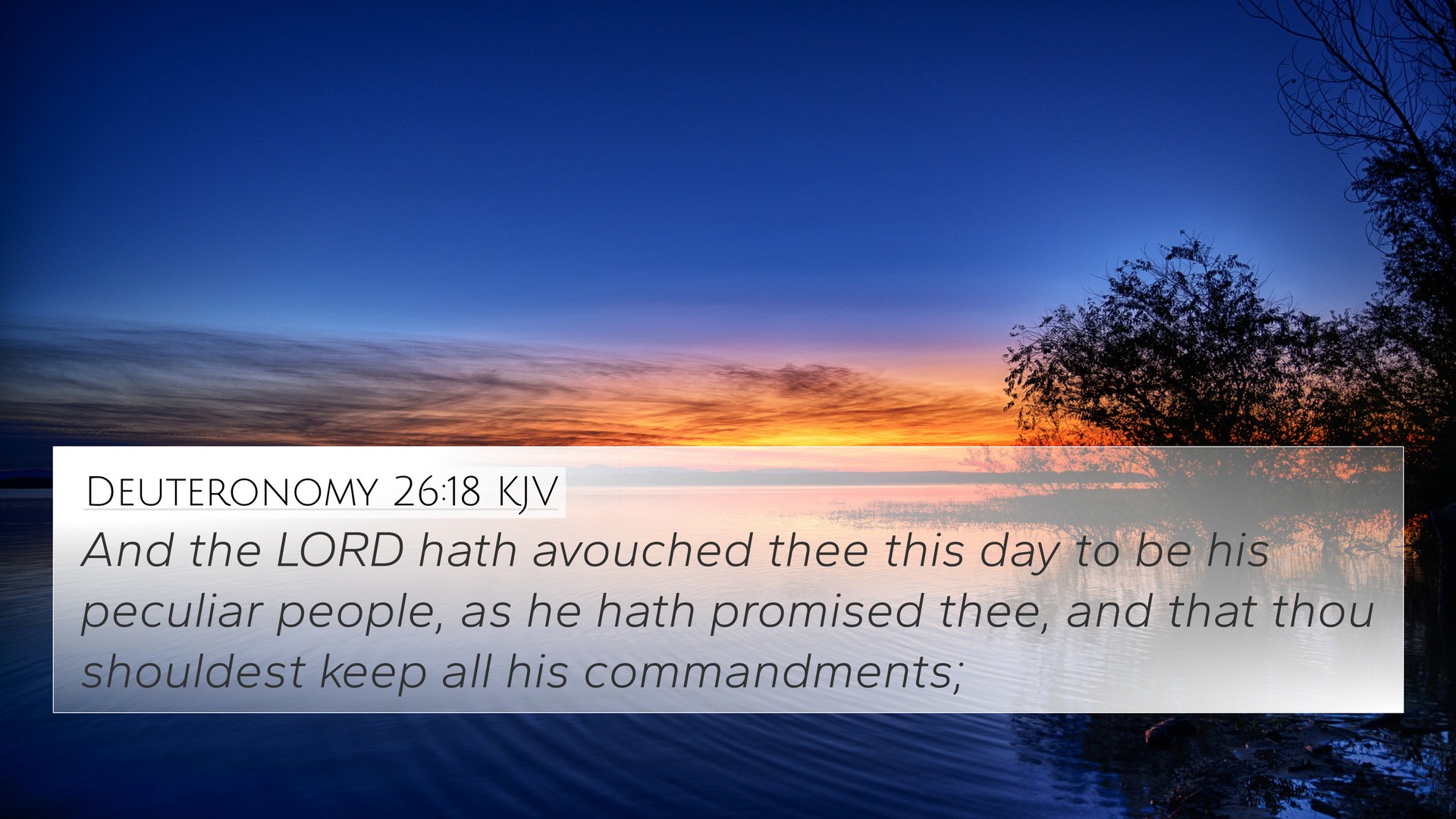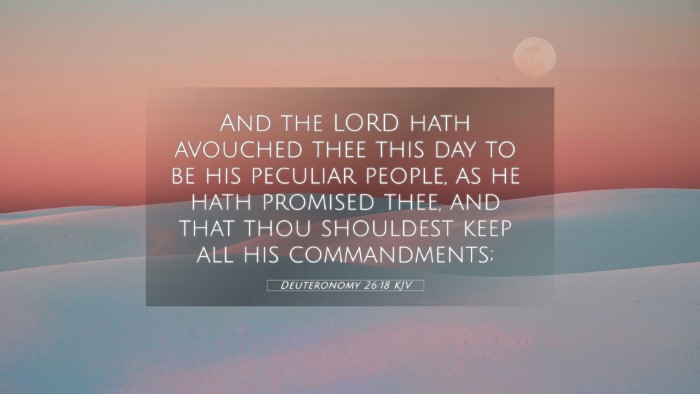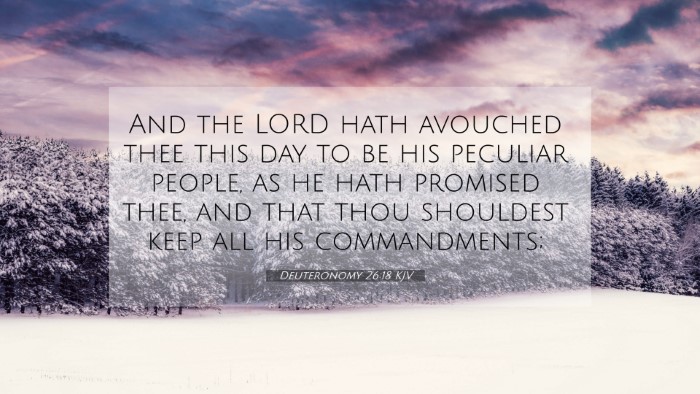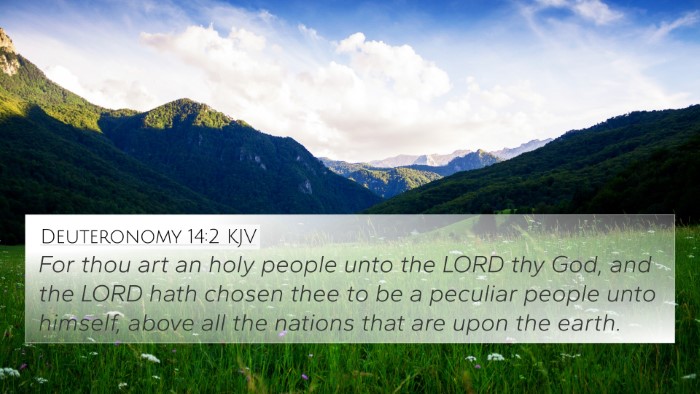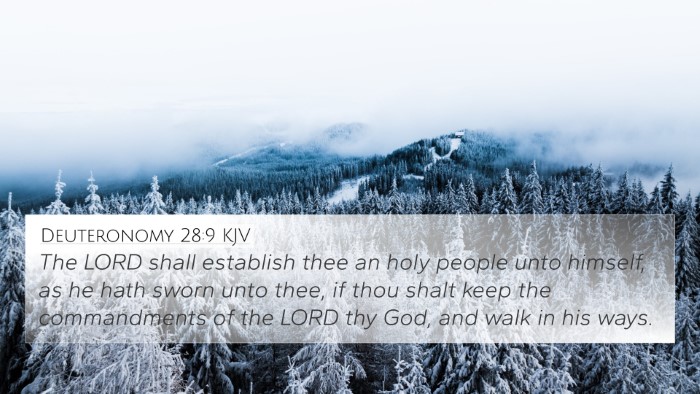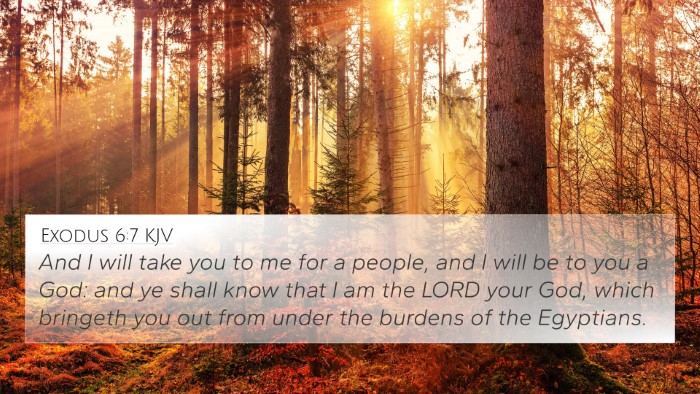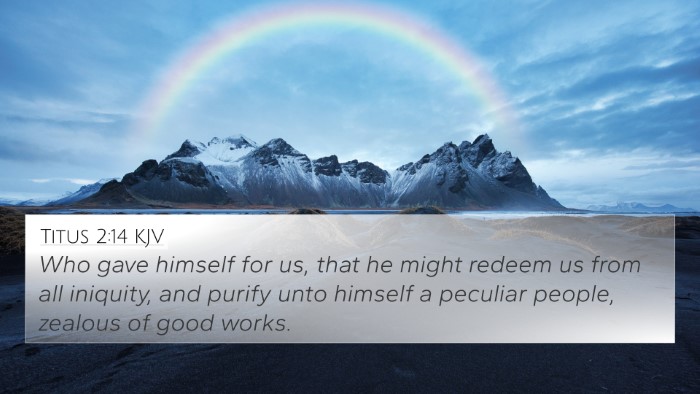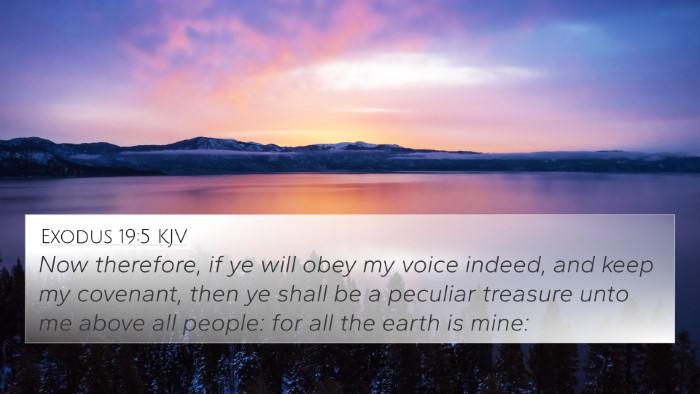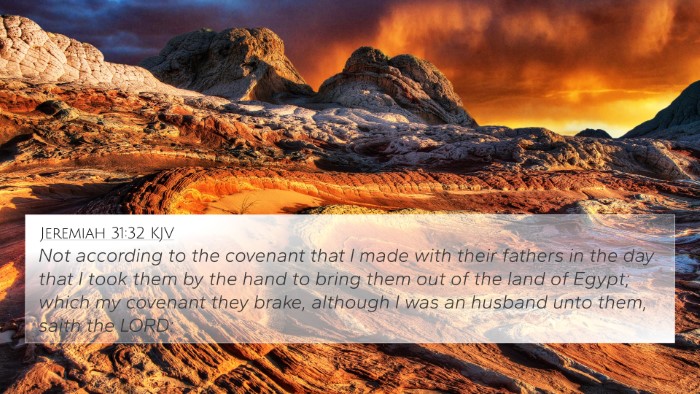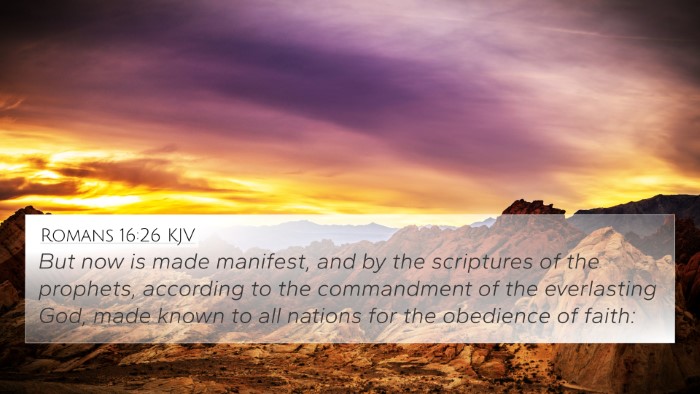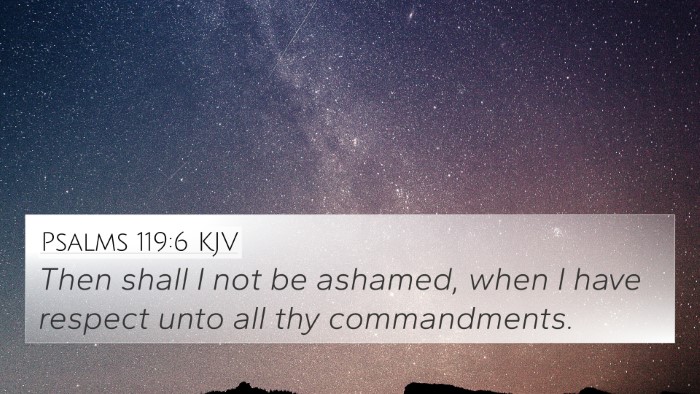Understanding Deuteronomy 26:18
Bible Verse: Deuteronomy 26:18
Verse Text: "And the LORD hath avouched thee this day to be his peculiar people, as he hath promised thee, and that thou shouldest keep all his commandments."
Summary of Meaning
This verse highlights a pivotal moment in the covenant relationship between God and Israel. It encapsulates the commitment made by the Israelites to uphold the commands of God in exchange for His declaration of them as His chosen people. Through a concise analysis combining insights from various public domain biblical commentaries, we can unpack the implications and significance of this verse.
Commentary Insights
-
Matthew Henry's Commentary:
Henry emphasizes the importance of God's election of Israel as His special people. This election is not just about privilege but entails responsibility—the expectation of obedience to God’s commandments. He adds that this relationship is based on fidelity to the covenant made with their forefathers.
-
Adam Clarke's Commentary:
Clarke notes that the term "peculiar people" signifies a special possession, underlining the relationship that the Israelites have as both favored yet accountable to God's law. He draws connections between this declaration and the theme of divine ownership expressed throughout Scripture.
-
Albert Barnes' Notes:
Barnes remarks that God’s avouching of Israel expresses a definitive mutual bond. He offers insights into the necessary obedience that follows such election, highlighting that covenant fidelity is the crux of their identity as God's chosen people.
Cross-References
This verse relates to several other scriptures that reinforce its themes of choice, obligation, and identity:
- Exodus 19:5-6: God’s declaration that Israel is a treasured possession.
- 1 Peter 2:9: Believers as a chosen generation, royal priests, and a holy nation.
- Deuteronomy 7:6: God's choice of Israel among the nations.
- Psalms 135:4: The Lord has chosen Jacob for Himself.
- Jeremiah 7:23: Commanding obedience as a condition for blessing.
- Romans 11:1-2: God’s continued faithfulness to Israel.
- Matthew 5:13-16: Believers as salt and light, a continuation of Israel’s heritage.
Thematic Connections
The verse serves as a reminder of the covenant theme throughout scripture, where the acts of faith and obedience lead to blessings and identity.
Tools for Bible Cross-Referencing
- Bible Concordance: A tool that lists words and their occurrences for finding related verses.
- Bible Cross-Reference Guide: A reference for linking related scriptures.
- Cross-Reference Bible Study: Methods for deepening understanding of interconnected scriptures.
How Cross-Referencing Enriches Bible Study
Utilizing cross-references enables a deeper understanding of the Bible's unified narrative. This approach highlights connections and enriches theological insights across both the Old and New Testaments, fostering a comprehensive grasp of God's messages throughout scripture.
Engaging with Inter-Biblical Dialogue
Connecting texts from different parts of the Bible opens avenues for exploration into how themes are echoed and expanded in various contexts. By viewing Deuteronomy 26:18 through the lens of these cross-references, readers gain a holistic understanding of the Scriptural narrative concerning God’s election and the expectations set upon His people.
Conclusion
The imperative nature of the commitments laid out in Deuteronomy 26:18 extends through generations, urging each reader to reflect on their own response to God’s chosen status and the commands given within the covenant. By employing cross-referencing methods, one can navigate these sacred texts more effectively, discovering a rich tapestry of themes that ultimately point to God’s relationship with His people.
